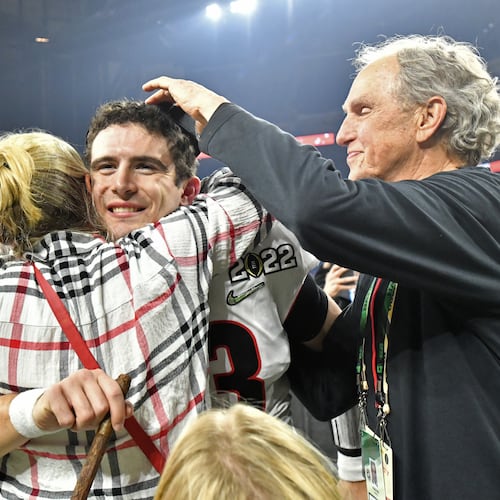Very soon now you can buy stock in the Braves, currently the Blockbuster of the baseball business.
That’s Blockbuster as in defunct video rental business, not blockbuster as Webster defines: “A great commercial success.”
To be clear where they stand, as of the end of trading Wednesday the Braves have won exactly as many games this year as Eastern has had take-offs. Those who make buggy whips, butter churns and cassette tapes have made the same strides in the marketplace as the Braves have in the standings.
Oh, and this just in: One of the key Braves performers, a projected bright light for the future – outfielder Hector Olivera – was arrested in Virginia after a domestic dispute.
So, do you buy?
The question you must answer: Can this property do better in Nasdaq than the National League East?
Liberty Media this week got stockholder approval to offer “tracking stocks” on three different components of its varied holdings, one being the Braves.
Doesn't really seem like a stroke of great timing.
Granted, franchises in the three big sports seem to gain value just by existing. Indeed, the Braves, bought by faceless Liberty in 2007 for $450 million, have been recently valued by Forbes at more than $1.1 billion. And they have won exactly zero playoff series in that time.
All big sports businesses seem immune to the same laws that rule real-life industry – the product may stink and the executive leadership may be misguided and yet nobody in the NFL, NBA or Major League Baseball ever seem to go bankrupt.
An investment in the Braves now is an investment in real estate futures as much as it is in baseball – a truth made painfully clear by Liberty Media’s boss in the recent stockholders’ meeting. “Now, keep in mind the Braves now are a fairly major real-estate business as opposed to just a baseball club,” John Malone told investors this week. Fans may not want to hear that the new Cobb County property is more important than any of the vaunted minor league prospects, but that’s the bottom line
I know just enough about the stock market to know that I shouldn’t invest in it beyond my 401k. I believe the market fluctuates with the randomness of pitched dice at Harrah’s. And that a monkey with a laser pointer could as accurately choose a good stock as anyone on MSNBC.
And I certainly know I wouldn’t want to invest in something that may rise or fall based on the actions of young athletes and the vagaries of their sports.
For instance, one day after Jordan Spieth had his Masters meltdown, the stock price of his big apparel sponsor, Under Armour, fell five percent. Other rational real market factors were involved in that, I’m told, but, still, investors had to feel that they, too, put two in the water on No. 12 Sunday. Who needs that angst?
There are enough emotions involved in following sports without adding in the Gordon Gekko greed factor. How the Braves perform on the field may not ultimately affect the stock price, but the very possibility of short-term gains and losses based on a leaky bullpen would be enough to drive me around the bend.
But, then again, one of the fundamentals of the market is to buy low, so I’m told. And in the Braves case, you scarcely could get much lower than the present.
About the Author
The Latest
Featured


